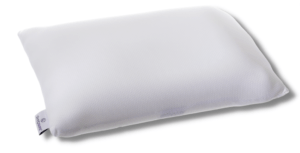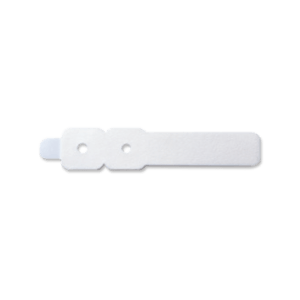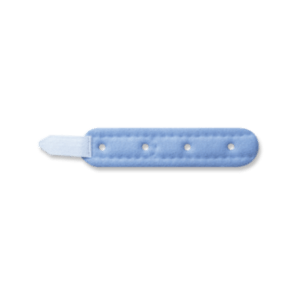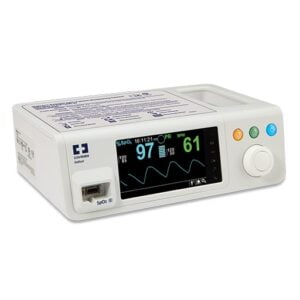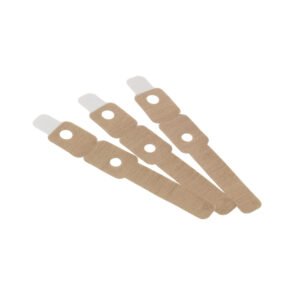Anti-Suffocation Pillows for Seizures and Epilepsy: A Life-Saving Innovation

 Living with epilepsy or a seizure disorder presents a unique set of challenges, with the risk of suffocation during a seizure being one of the most concerning. The unpredictable nature of seizures means they can occur at any time, including during sleep, posing a significant danger if a person ends up in a position where breathing is obstructed. Anti-suffocation pillows are a vital innovation aimed at mitigating this risk, offering peace of mind and potentially life-saving benefits. But how effective are they? Clinical trials and studies provide some insights.
Living with epilepsy or a seizure disorder presents a unique set of challenges, with the risk of suffocation during a seizure being one of the most concerning. The unpredictable nature of seizures means they can occur at any time, including during sleep, posing a significant danger if a person ends up in a position where breathing is obstructed. Anti-suffocation pillows are a vital innovation aimed at mitigating this risk, offering peace of mind and potentially life-saving benefits. But how effective are they? Clinical trials and studies provide some insights.
Understanding the Need
Epilepsy affects approximately 50 million people worldwide, making it one of the most common neurological disorders globally. Seizures can vary greatly in intensity and duration, but they all share a common feature: a disruption of normal brain function, often resulting in involuntary movements and loss of consciousness. When a seizure occurs during sleep, the individual can unknowingly position themselves in a way that obstructs their airway, leading to suffocation. This is particularly dangerous with face-down positions or when using traditional pillows that can conform to the face and restrict airflow.
The Concept Behind Anti-Suffocation Pillows
Anti suffocation pillows are designed with the primary goal of ensuring adequate airflow, regardless of the user’s position. These pillows incorporate several key features:
Breathable Materials: Made from open-cell foam or other breathable materials, these pillows allow air to pass through even if the face is pressed against them.
Strategic Design: Many anti-suffocation pillows have a unique shape or surface design, such as a grid or channel system, which maintains air pathways even under pressure.
Supportive Structure: They provide adequate support to the neck and head, reducing the likelihood of dangerous positions during a seizure.
Clinical Trials and Evidence of Effectiveness
Several clinical trials and studies have been conducted to evaluate the effectiveness of anti-suffocation pillows in reducing the risk of suffocation during seizures.
2014 Study by Peter G. Catcheside, Aaron A. Mohtar, Karen J. Reynolds: This study involved comparing the airflow resistance and build up of CO2 between standard pillows and anti-suffocation pillows
Why Anti-Suffocation Pillows Could Be Effective
Improved Airflow: The primary advantage of anti-suffocation pillows is their ability to maintain airflow and reduced CO2 levels. Traditional pillows could pose a suffocation risk if an individual ends up face-down or with their face pressed into the pillow. The breathable design of anti-suffocation pillows ensures that even in such scenarios, the person can still breathe.
Reduced Anxiety for Caregivers and Patients: For individuals with epilepsy and their caregivers, the fear of nighttime seizures can be overwhelming. Knowing that an anti-suffocation pillow is in use can provide significant peace of mind, allowing for better quality sleep and reduced anxiety.
Enhanced Comfort and Support: These pillows are not just about safety; they are also designed for comfort. By providing proper support to the neck and head, they help in maintaining a healthier sleeping posture, which is beneficial for overall well-being.
Potential to Save Lives: By addressing the risk of suffocation, these pillows could play a role in preventing SUDEP. While the exact causes of SUDEP are still not fully understood, reducing suffocation risk is an integrated preventive measure.
Real-World Applications and Testimonials
Many individuals with epilepsy and their families have reported positive experiences with anti suffocation pillows. Testimonials often highlight the dual benefits of safety and comfort, with users noting fewer instances of waking up in potentially dangerous positions and improved sleep quality. Healthcare providers also recommend these pillows as part of an integrated seizure management plan, recognizing their potential to mitigate one of the more controllable risks associated with epilepsy.
Anti-suffocation pillows represent a thoughtful and effective solution for a critical issue faced by those with epilepsy and seizure disorders. By ensuring continuous airflow and providing supportive comfort, these pillows can significantly reduce the risk of suffocation during sleep. Clinical trials and real-world testimonials support their effectiveness, making them a valuable addition to a broader strategy that includes medication, lifestyle adjustments, and regular medical consultations. Anti-suffocation pillows can help individuals with epilepsy achieve safer, more restful nights, enhancing safety and bringing much-needed peace of mind to patients and their loved ones.
SleepSure Epilepsy Pillow
The most “Breathable” Epilepsy Pillow available
The SleepSure pillow is designed to prioritize safety by utilizing highly breathable, hypoallergenic materials. SleepSure has also implemented rigorous testing and quality control measures to ensure compliance with safety standards and is now the only anti-suffocation pillow registered with the TGA as a class one medical device, providing peace of mind to users and their families.
Nellcor Oxiband Foam Sensor Wraps Replacements – Adult / Infant (pack of 100)
Nellcor Velcro Wrap for attachment of Adult Reusable Sensor OXI-P/I and D-YS.
Suitable for Adults (Over 40kg – Finger) and Infants (under 3kg – Toe)
Nellcor Oxiband Foam Sensor Wraps Replacement – Peadiatric (pack of 100)
Nellcor Velcro Wrap for attachment of Adult Reusable Sensor OXI-P/I and D-YS.
Suitable for Pediatric patients (Between 3kg – 40 kg)
Nellcor Oxiband Velcro Sensor Wraps Replacement – One Size (pack of 12)
Nellcor Velcro Wrap for attachment of Adult Reusable Sensor OXI-P/I and D-YS.
Suitable for all patients
Medtronic Nellcor PULSE OXIMETER WITH 1 REUSABLE SENSOR PM100N
The Nellcor™ bedside SpO2 patient monitoring system, PM100N, provides at-a-glance access to real-time patient respiratory status information including continuous SpO2 and pulse rate monitoring and trending data.
Nellcor Oxiband Reusable Oxygen Sensor – Adult / Neonatal
OxiMax Oxiband Sensor is a reusable sensor to determine oxygen saturation and pulse rate.
Nellcor Oxiband Adhesive Sensor Wraps Replacement – Peadiatric (pack of 100)
Nellcor Adhesive Wrap for attachment of Adult Reusable Sensor OXI-P/I and D-YS.
Suitable for Pediatric patients (Between 3kg – 40 kg)
Nellcor ADH Oxiband Adhesive Sensor Wraps Replacement – Adult / Infant (pack of 100)
Nellcor Adhesive Wrap is for the attachment of Adult Reusable Sensor OXI-A/N and D-YS.
Suitable for Adults (Over 40kg – Finger) and Infants (under 3kg – Toe)
Nightwatch Replacement Armband (Per Metre)
Replacement armband for Nightwatch seizure monitor, sold by the metre. Nightwatch seizure monitor not included.


